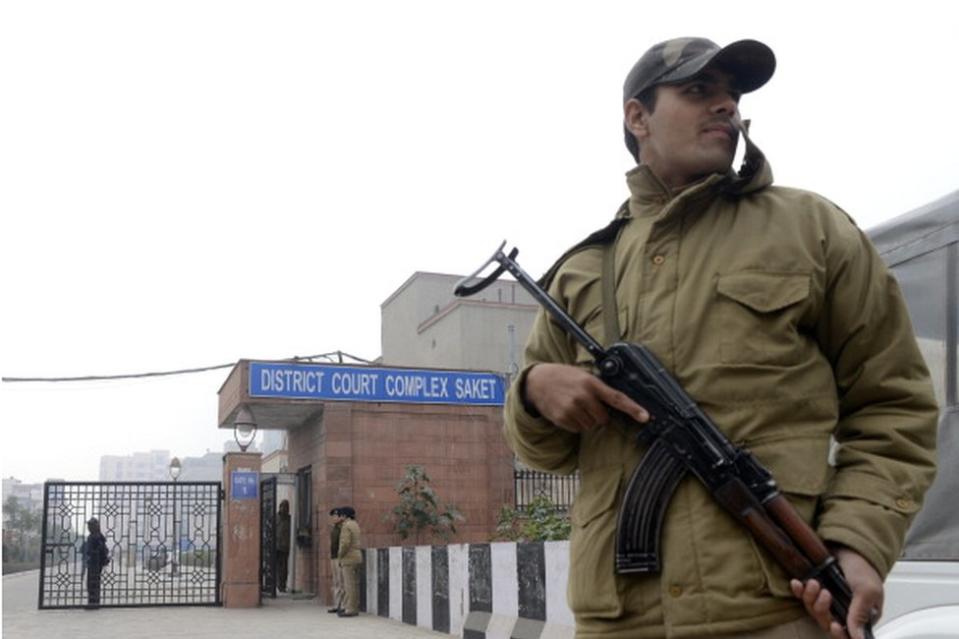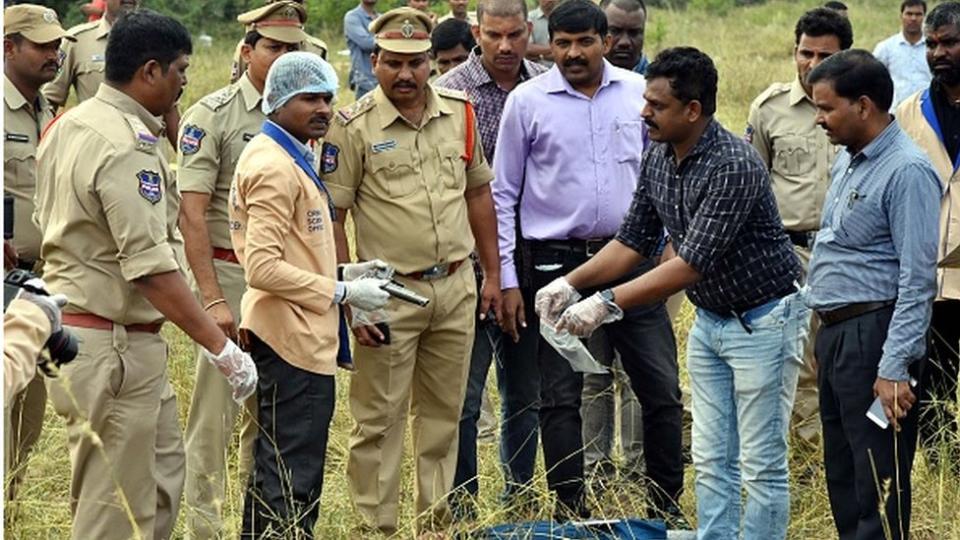Is India’s planned criminal law reform a game-changer?

[ad_1]
Last week, India’s ruling government unveiled three new bills in parliament, saying they would lead to a “major transformation of our criminal justice system”.
Bills have been prepared to repeal and replace three criminal laws. The Indian Penal Code and the Indian Evidence Act are archaic laws dating back to the colonial era, while the Criminal Procedure Code is half a century old. The draft laws have been referred to a parliamentary committee for further discussion. Home Minister Amit Shah says their goal is “to achieve justice, not just punishment.”
India’s criminal justice system needs urgent reform: poor police investigations often lead to catastrophic miscarriages of justice; Prisons are filled with criminal trials, and slow-moving courts are overcrowded with some 50 million cases.
Legal scholars say the bills contain some important changes that cover a wide range of the judicial system.
On the one hand, they make crimes such as terrorism, corruption, lynching and organized crime under penal laws. It allows people to register a police complaint at any police station, regardless of where the crime occurred. They suggest recording searches and seizures on video and increasing the use of electronic evidence and forensics during investigations. They offer community service as a new form of punishment. They demand accelerating justice through video trials and holding trials in absentia for the accused.

However, experts question how some of these laws work. Anoop Surendranath, a law professor at the National Law University in Delhi, says the way the new crimes have been framed — acts endangering sovereignty, organized crime, mob lynching, terrorism, and rape by false promise of marriage — “no “It remains so vague that it ends up giving the police unreasonably broad arrest powers.” “These vague provisions perpetuate the exercise of police powers in ways that are constitutionally unacceptable,” he says.
For decades, successive governments have used India’s colonial era Strict sedition law Against students, journalists, intellectuals, social activists, and critics of authority. The government now claims to have taken a “historic” decision to repeal the controversial law.
Not quite, experts say. The sedition law has been replaced by another in the new bill that punishes “acts endangering the sovereignty, unity and integrity of India.” In other words, experts say, this is actually an expanded definition of sedition itself. “Sedition should have ended,” says Naveed Mahmood Ahmed, a senior fellow at the Vidhi Center for Legal Policy, a Delhi-based think tank. “It has been preserved, and perhaps even strengthened.”
Experts point out that the draft laws ignore some crucial aspects. Marital rape has not been criminalized despite the existence of strict laws in India to deter sexual violence against women. (The Supreme Court is also preparing to begin hearing petitions to criminalize it.) Crimes that criminalize speech – including sedition and obscenity – require reconsideration.

Then there are semantics. Mrinal Satish, a professor of criminal law at the Bangalore-based National Law School of India University, points out that the terms “modesty” used in the law refer to a crime. “Affronting a woman’s modesty” Should be taken out. The bills should also have included “a review of crimes related to… Religion and infidelity“Some of which are still so vague and ambiguous that they can be considered criminal provisions,” according to Mr. Ahmed.
Some of the proposals seem vague. Mr. Ahmed highlights a provision that stipulates a minimum penalty of seven years in prison, life imprisonment, or even the death penalty for each individual within a mob — a gathering of five or more people — found guilty of race-based murder. sect and society.
“I’m not sure what the most appropriate punishment is in this case, but it’s certainly not the death penalty,” Ahmed says. “Imagine sentencing a crowd of 50 people to death for murder.”
“Also, the biggest problem in these cases is the investigation, the evidence, and the way the trial was conducted. I do not know how useful it is to link this crime to murder when we know that there is Social and political factors that may affect these cases. This may require a completely different approach to determining guilt, collecting evidence, and investigating.
Experts agree that many provisions of India’s 163-year-old Penal Code are embarrassingly outdated. There is a penalty for a slaughtererand the The crime of obscenity It is based on the ideas of Victorian morality. “Except for removing the reference to thugs and punishing them, the new bill retains other outdated parts and definitions,” says Professor Satish. “Seeking to change an existing law on the grounds that it was enacted during the colonial period is not sufficient justification.”
On top of that, there are enormous institutional challenges, experts say. For example, the bills propose that every crime scene should be subject to a forensic investigation. “But is India’s forensic system ready to handle that? Everyone knows it’s not,” says Professor Surendranath.

Most experts say the new bills “more than 80% retention” From the 160-year-old Indian Penal Code, developed by the British historian Thomas Babbington Macaulay. They also say that the 50-year-old Criminal Procedure Code is regularly updated and amended, including in 2018. “This is not a comprehensive reform,” says Professor Surendranath. “The majority of these bills retain exactly the same existing provisions under them New names“.
Experts say that rather than scrapping laws and dealing with the massive administrative challenges that would follow, India could have amended existing laws. Countries such as Singapore, Malaysia, Sri Lanka and Bhutan still use colonial penal code – and Singapore has recently made amendments to modernize it and introduce existing requirements. India too She changed and updated her sexual violence law in 2013. “This could have been the way forward, not what the bills propose to do,” says Professor Satish.
BBC News India is now on YouTube. click here To subscribe and watch our documentaries, annotations and featured films.
Read more India stories from the BBC:
[ad_2]
Source link





